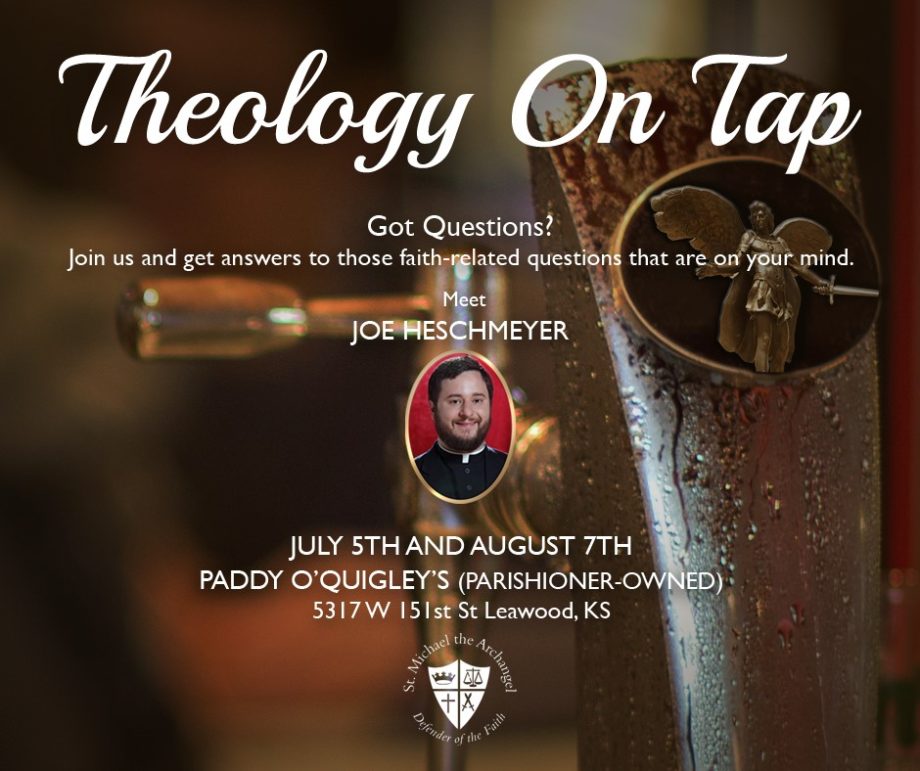
Tonight, at 7 p.m., at St. Michael the Archangel’s parish in Leawood, Kansas, I’ll be asking and answering the question: Why do we trust the Bible? And if we want to get more specific, Why do we trust the Catholic Bible?
After all, you’ve probably heard some of the following claims:
- There’s no reason to trust the Bible’s claims about Jesus any more than the Qu’ran’s claims about Muhammad, or the Book of Mormon’s claims, etc.
- The Bible was put together by a group of bishops – or worse, by the Emperor Constantine – at the Council of Nicaea.
- The early Christian Church had many more books, like the Gnostic Gospels, but a small group of “conservatives” quashed these alternative expressions of Christianity in the name of orthodoxy.
- The early Christians had fewer books: specifically, that they didn’t have the “Apocryphal” Books, the Deuterocanon, which some Protestants say were added only after the Reformation.
Now each of those four claims is fundamentally wrong. But how do we go about showing this? I want to address this question in two parts:
- First, why do we trust the Bible generally? Or to put it differently: why do we trust the Bible at all? Why do we think that there is such a thing as written divine revelation? This is the “Big Question.”
- Second, why do we trust the Catholic Bible specifically? This is the “Little Question.”
The talk is being recorded, so if all goes well, I hope to have audio/video at some point. We’ve actually got an exciting set of talks lined up, both as this Called to Glory series, and two upcoming Theology on Tap Q&A sessions. First, Theology on Tap, since that starts next week:

The other Called to Glory talks, beginning again in two weeks, are as follows:
- July 13th: The Truth About Marriage
What does it mean to be for “traditional marriage”? And what does it mean to say that one is for or against “gay marriage”? For this debate to make any sense, we first need to know: what is marriage? And is traditional marriage simply believing that marriage is between one man and one woman, or is that just part of a broader vision of a social and religious reality?
- July 20th: All Generations Will Call Me Blessed: What the Bible Really Teaches About the Mother of Jesus
One of the major issues dividing Catholics and Protestants involves the Mother of Jesus, the Blessed Virgin Mary. Catholics undoubtedly take a “high” view of Mary, praying to her, honoring her, and putting statues of her in their churches, homes, and workplaces. Is this superstition (or even idolatry)? Or does the Bible encourage us to honor Mary?
(There will be no talk on July 27th due to World Youth Day)
- August 3rd: The Papacy in Scripture and the Early Church
In Matthew 16, Jesus promised to build His Church, and gave the Keys of that Church to St. Peter. Does this make St. Peter the first pope? Or is the papacy a Medieval invention? To explore this question, we will be looking at several other parts of the New Testament as well as evidence from the first few centuries of Christianity.
- August 10th: Seven Mysteries of the Faith Unlocked by the Eucharist
The scroll and seven seals of the Book of Revelation couldn’t be opened without the Lamb standing as though slain, the Eucharistic Christ. Come and hear how the Eucharist is the key we need to unlock: (1) the New Covenant; (2) the Old Covenant; (3) the Mass; (4) Early Christianity; (5) the Church; (6) the lives of the Saints; and (7) your own spiritual life.
***One final thing: I’m hoping to squeeze in one more talk this summer, on the subject of theosis (also called: divinization or glorification). Please pray for that!***

Can’t wait!!!!
This post is “no fair”. Why?… posting events that will be hop filled, discussion of life giving topics- when I cant attend!!! Phoo-eee! I will have to keep all in my prayers and ask that you toast those not in attendance…I Soldier on… somehow…
We recorded the first of the two talks yesterday, so I hope to have audio and maybe video up soonish!
so, this will not be broadcast over the Internet?